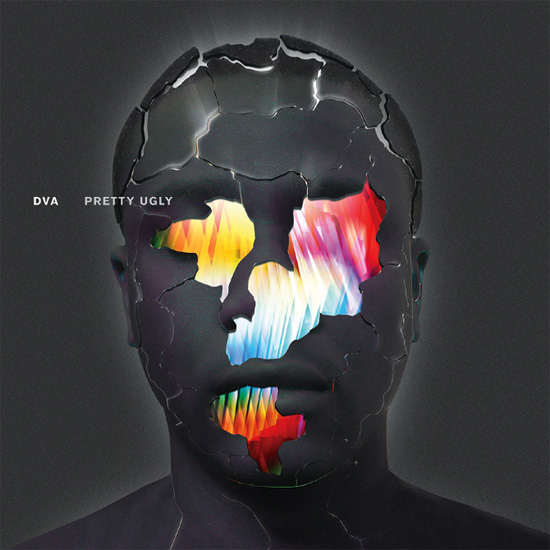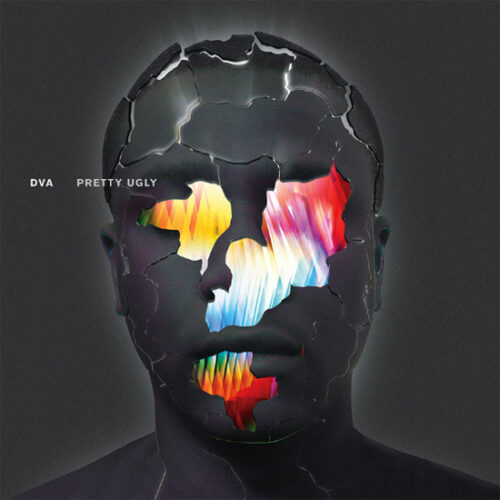As befits a former host of Rinse FM’s Grimey Breakfast Show and veteran producer of music rooted in grime, Leon ‘Scratcha DVA’ Smart’s public persona has always toed the line between wild energy and tight control. His interviews often find him operating in rapid fire mode, peppering his points with examples and keeping conversation comfortably moving of his own volition. The same is true of his music which, in a world of identikit broken house and soft-synth dubstep, carries that rare trait of actually reflecting the personality of its maker. While producing grime his attitude was slightly offset from that of his contemporaries ("I’d always go on grime forums and say ‘Why does it have to be 140 bpm’?", he said to me in an unpublished interview late last year). And once his productions moved across to the realms of UK funky house he immediately began to tease apart the calcifying soca-fied bounce that the genre’s more mainstream-leaning DJs were sticking closely to. "It wasn’t so straight funky, but still in that world" he said of 2009’s ace single ‘Jelly Roll’ in the same interview. "[But] I’ve gone along to all that lot and they’re like ‘What is this? I can’t play this!’ And I’m thinking ‘No, no, no, it’s happening again – my weirdness is coming through, and they don’t like it!"
That ‘weirdness’, though, is simply Smart’s personality bubbling up through his music, and it’s always formed the basis of his appeal. ‘Jelly Roll’, for example, was possessed of a cartoonish ascending-descending motif that did a good job of masking the oddness of the percussive syncopations that lay beneath. ‘Ganja’, from his debut Hyperdub 12", went even sicker, its greasy melody splattering infectious material all over anything it came into contact with. On his debut album, that same unwillingness to bow to convention is as firmly fixed as ever. Never one for remaining in one place for too long, the album format appears to have provided him with an ideal opportunity to stretch his wings. So while Pretty Ugly remains deeply rooted in his own history in UK urban music, containing a decent scattering of funky-ish house tracks, it just as often affords him the space to be stylistically divergent. Vocals feature prominently throughout, and the music backing them regularly sends tendrils outward into the realms of Los Angeles-leaning slumped hip-hop and Eglo Records-style electronic soul and broken beat.
But where those styles stay rooted in more organic territory (the former’s stumbling, human-played feel, the latter’s use of live-sounding instrumentation), Pretty Ugly is defined by its rather more synthetic properties. Smart’s synths have a cheap and rather plasticky feel to them, a peculiarly rigid quality that finds them snapping around the edges when stretched too far. It’s a texture that’s becoming increasingly familiar at the moment, with electronic musicians from across the spectrum using the harsh shudderings of overdriven digital sound as elements within a developing aesthetic (Ital’s Hive Mind and Oneohtrix Point Never’s Replica are good recent examples). Pretty Ugly, though, serves as a reminder that they’ve been par for the course in grime since the year dot, thanks to that genre’s progenitors largely building its earliest tracks using very cheap, consumer-focused software like Music 2000 or FruityLoops.
Grime’s sonic tropes have long since infiltrated the mainstream, initially in the form of Dizzee Rascal’s brutally uncompromising Boy In Da Corner, and more recently thanks to long-running MCs like Tinchy and Wiley hopping on the Euro-dance train. But it’s been very rare to hear the sort of grimey textures Smart employs here put to the service of primarily female-vocalled pop music. Even when grime got naughty with house in the form of UK funky, its more iconic vocal performances (Crazy Cousinz’ ‘Do You Mind’, Ill Blu’s ‘Frontline’, DVA’s own ‘I’m Leaving’) tended to dial down the dissonances and wild sino-melodies that often formed the hooks of MC-led riddims.
Pretty Ugly, though, smashes the two headlong into one another – song-based vocal performance versus fluorescent synthplay – generating an intriguing tension. The toxic dissonances and skittish motion of DVA’s melodies would never have seemed particularly well suited to the addition of vocals – they risk overshadowing a singer entirely, or at the very least distracting from any nuances in their performance. However, as on Smart’s Soule Power remixes and earlier singles ‘I’m Leaving’ and ‘Just Vybe’ (featuring Eglo Records vocalist Fatima), on Pretty Ugly the songs themselves generally manage to remain focal points, even as the music around them frequently explodes in showers of garish colour.
The album’s pared back version of ‘Just Vybe’ admittedly sidesteps that issue entirely, stripping away the lustrous streaks of colour that made its 2010 single version sound so starstruck. Frustratingly, allowing Fatima’s voice more space actually ends up stripping the song of a great deal of its power – where the original’s airy melodies lifted her ever-higher, here her two feet remain planted squarely on the ground. Elsewhere, his vocalists fare better: during the stuttering broken house of the title track, Cornelia’s voice is phantom elusive, regularly half vanishing in big Duplo blocks of heavily filtered synth. Victor Dupiaux’s super-smooth delivery takes centre stage on ‘Madness’, a diversion into three time that makes for a welcome break from the 4/4 domination of the majority of the record.
In contrast to DVA’s 12" releases, you’d be hard pressed to call most of Pretty Ugly a ‘dance’ album per se. It’s certainly far more interested in exploring its own world than slotting comfortably alongside any of Smart’s contemporaries. Which isn’t to say that he’s not still capable of a killer dancefloor tune – there are several across its length. Opener ‘Reach The Sun’ passes through a vortex of computer mangled audio before settling into a loping UK funky groove. Previous single ‘Polyphonic Dreams’ is doomy and deranged, a carnival of glassy-eyed bleeps reminiscent of Benga & Coki’s dubstep anthem ‘Night’. ‘The Big 5ive’s fleet-footed drums, too, bring to mind the spiraling percussion work of Addison Groove or Martyn. However, the album’s sequencing tends to quash any momentum built up during its more club-friendly tracks. That’s not generally a problem, save a saggy midsection, where the combination of ‘Madness’, ‘Fire Fly’ and ‘Why U Do’ (all fine when played by themselves) ends up making each sound sluggish rather than soulful. But it does seem to make a definite statement about Pretty Ugly, as a record that demands to be taken as its own distinct entity from DVA’s club 12"s. Which works just fine when his vision continues to be as expansive and eccentric as usual.



